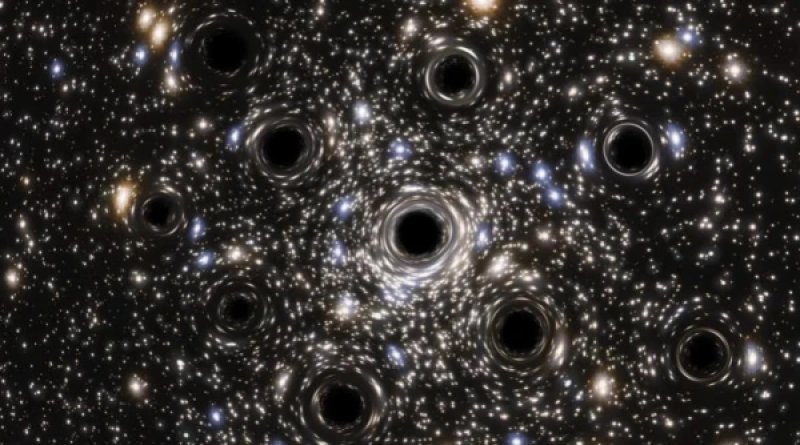
Primordial black holes from the early universe may be components of mysterious dark matter. Therefore, a deeper understanding of the nature of these black holes could help physicists better understand dark matter. But what will happen if such a black hole passes through a person's body? Physicists say it will depend on the size of the black hole. The study was published in the International Journal of Modern Physics, writes EarthSky. Physicists set out to determine what gravitational effects might occur when a primordial black hole passes through a person's body. This could help physicists better understand the properties of dark matter. Primordial black holes are hypothetical objects from the early universe that are believed to have formed within the first second after the Big Bang. These small black holes could have masses ranging from 100,000 times less than the mass of a paperclip to 100,000 times more than the mass of the Sun. Some physicists believe that primordial black holes could be components of the mysterious dark matter, which is more prevalent in the universe than matter made up of ordinary atoms and molecules. Scientists investigated the minimum size of a primordial black hole necessary to cause serious harm to a person. Having this information could help determine the properties of dark matter, such as its mass. Physicists used data from previous work in their study, where they examined the properties of macroscopic dark matter. This hypothetical dark matter is large and consists of many particles. The researchers found that macroscopic dark matter could cause significant destruction within the human body. Physicists believe that when a primordial black hole passes through a person's body, two gravitational effects will occur: a supersonic shock wave and tidal gravitational forces. * A supersonic shock wave forms when an object moves at a speed exceeding the speed of sound, creating a powerful disturbance in the shape of a cone. As it passes through a person's body, the primordial black hole will create such supersonic shock waves that will lead to the destruction of bodily tissues. This will be similar to being hit by a bullet, the scientists say. * Additionally, the primordial black hole will create tidal gravitational forces, or the difference in gravitational strength between two points. This will create a stretching force that will tear apart human cells, with brain cells being the most affected. Although this research may help determine the mass of primordial black holes as components of dark matter, there is no need to worry about them. According to physicists, primordial black holes may theoretically exist, but they may not. A sufficiently large primordial black hole could cause serious injury or death if it passes through a person's body. A smaller primordial black hole could pass through a person's body without even being noticed. The density of these black holes is so low that such an encounter is virtually never going to happen.

